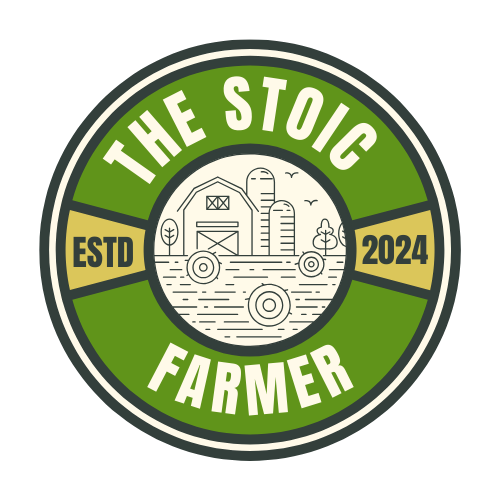We’re trapped in the belly of the beast, riding a shitstorm straight into financial hell.
This isn’t just a pickle—it’s a goddamn meat grinder, and we’re the ones getting chewed up.
The farm economy spun us around like drunks in a rigged carnival game, then yanked the financial rug out from under us before we could sober up.
Even with the sharpest pencil, nearly every crop’s a kamikaze mission.
A hundred-bushel wheat crop—a yield that used to make you want to dance naked in the moonlight—won’t even cover the bills this year, let alone the price of a stamp.
Frustration gnaws at your soul, and the aggravation is enough to make a sane man start talking to his crops like they’re old drinking buddies.
Maybe dry edible beans would look halfway decent if you snagged a contract early, but that’s one hell of a long shot. And that’s assuming you’ve got the kind of ground that can squeeze out a decent crop of navy or pintos.
There’s always that damn “if”—the devil’s favorite word.
Sugarbeets might turn a profit, but only if the stars align and you’re lucky enough to grow those sweet, stubborn taproots. Even then, it’s a roll of the dice. I’ve seen beet fields that could’ve been worth their weight in gold turn to flooded mush over a September weekend.
Wheat, corn, soybeans, canola, and sunflowers—it doesn’t matter what you grow; it’s all a certifiable shitshow.
The financial swings in this business are like riding a rollercoaster in a blackout—you’re bound to puke, and you’ve got no idea where you’ll land.
You feel it in your bones, that sickening dance on the razor’s edge between hope and despair. This isn’t just about money; it’s about holding on to the last shreds of your sanity. Farming isn’t a job; it’s a high-wire act without a net, an identity you wear like a second skin, and when it all goes to hell, it drags every part of you down with it.
You start to wonder if there’s any point to this madness.
The struggle is enough to break a man, especially the young ones whose souls are tied to the land, the farm their grandfathers and fathers bled to build.
Losing a farm isn’t just a financial loss—it’s like having your heart extracted with a rusty knife. In some twisted way, it can feel worse than losing a family member because when that farm slips away, you’re losing the very thing that defines you.
The land, life, and legacy—all bound up in you and me.
My family’s been there, tasted that bitter despair, that soul-crushing sense of defeat. My grandpa, rest his soul, was on top of the world in the late ’70s. He ran one of the biggest farms in Minnesota—a real king of the hill.
But then, like a bad acid trip, everything came crashing down. High interest rates and a few reckless decisions—expanding too much, too fast into unproductive land—turned a mighty empire into dust, a relic destined for the history books.
Everything he’d built was gone.
Sure, Grandpa missed the farm daily, but he didn’t let it destroy him. Some of his best years came after he lost it all. He found a way to thrive, to live a life of meaning, even without the land that had defined him for so long.
The lesson?
Life goes on, even when you’re sure it’s over.
I’ve walked through the fire myself—losing a marriage and my young boys before declaring bankruptcy two years ago.
At the time, it felt like the end of everything. I thought I was a failure, and for a while, I didn’t want to keep breathing. But somehow, I made it through and clawed my way back from the brink.
It wasn’t easy.
There’s a reason for the struggle. It forges you in the fires of hell and shapes you into someone who can weather any storm.
But listen to me now: Don’t kill yourself over it, for God's sake. No matter how bleak or sour things get, there’s always a way through. Don’t become another statistic; don’t let this downturn turn you into another farmer’s suicide splashed across the news.
You’re worth more than that.
If you’re struggling, reach out. There are lifelines out there.
The National Suicide Prevention Lifeline (1-800-273-8255) is there 24/7, as is the Crisis Text Line—just text HOME to 741741.
For those of us in agriculture, organizations like Farm Aid and the AgriSafe Network offer support tailored to our twisted reality. Don’t be afraid to lean on them.
We’re all in this together; there’s no shame in asking for help. Don’t keep your struggles bottled up—reach out.
Talk to your wife.
Talk to a therapist.
Talk with another farmer who’s been through the same hell.
Hell, talk to me—I’ll always answer your emails and calls.
For the love of God, talk to someone. Let it out before the stress eats you alive.
Remember this: Life goes on.
The farm might be a massive part of who you are, but it’s not all of who you are.
Don’t let it be the final chapter in your story.






Wow. I am literally speechless. I have goosebumps. I was practically brought to tears reading this. Simply amazing, honestly 🫶🏼 thank you sharing, that was goddamn beautiful in every way possible. You should be incredibly proud of yourself and your work ✨
Thank you for writing this! People can now call 988 too, it's the new mental health hotline. Farmers used to be price makers, now they're just price takers. Maybe working together we can turn that around.